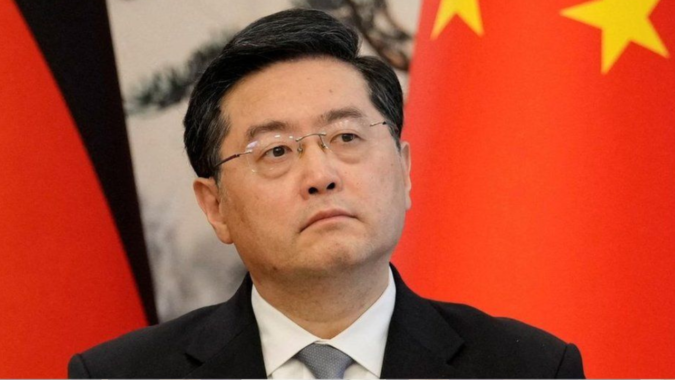Following weeks of speculation that he had fallen out of favour, Qin was removed from office by Beijing’s top lawmaking body on Tuesday. Wang Yi, a seasoned diplomat who held the position of foreign minister before Qin and held a higher rank in the Chinese government hierarchy, has taken over Qin’s position.
So far, China has offered no explanation for Qin’s dismissal, nor why he has not been seen in public for more than a month.
Adding to the mystery, official references about Qin, which were previously removed from the foreign ministry’s website, have now started to reappear, the UK-based newspaper Guardian reported on Friday.
After Qin Gang was replaced by his predecessor, Wang Yi, articles about his activities were taken down from the foreign ministry’s website.
In the early hours of Friday morning Beijing time, articles detailing Qin’s final activities as foreign minister resurfaced online. The last report dates back to 25 June when he met with his Vietnamese counterpart in Beijing. A report about his meeting with the US secretary of state, Antony Blinken, also reappeared after a temporary removal.
The foreign ministry’s back-and-forth actions regarding the articles have left observers puzzled.
Since 25 June, Qin has not been seen performing any official duties, canceling scheduled meetings, including one with European parliament president, Josep Borrell. Instead, Wang Yi, China’s top diplomat, has been attending international summits, representing Qin.
Despite media inquiries, a foreign ministry spokesperson, Mao Ning, has repeatedly avoided answering questions about Qin’s situation, either redirecting journalists to a Xinhua report on his replacement or stating a lack of information.
Reasons or rumours behind Qin’s removal
Observers and analysts have offered many reasons behind Qin’s disappearance from public office, including rumors of a power struggle with Wang, a potential political misstep during or near his meeting with the US secretary of state, Antony Blinken, the week before he vanished, or the possibility of being compromised by foreign intelligence services.
Furthermore, there have been allegations of an affair with a TV anchor, who has also been absent from the public eye since posting a tweet featuring a photo of herself interviewing Qin on 11 April. However, analysts suggest that an affair alone would unlikely lead to a political purge.
As of now, no official investigation has been announced, leaving the possibility open that Qin’s disappearance might be health-related or that he is being intentionally sidelined and reduced to insignificance in the political landscape.
Setback for Xi?
Qin’s ascent was previously linked to his close relationship with Chinese President Xi Jinping. Recently, an unnamed Biden administration official was quoted by the Washington Times saying that Qin was not well-liked within the Chinese foreign ministry. His appointment to the position was perceived as a significant promotion ahead of other candidates, making a fall from grace highly embarrassing for Xi, whose judgment is typically unquestioned.
Even though Qin has been absent for a month, his dismissal and the swift appointment of Wang as his replacement seem hurried. The announcement of the meeting by the standing committee responsible for cabinet changes was given with only one day’s notice, and there are indications that Wang’s return might be temporary.
According to a Bloomberg report, Qin’s removal could deal a blow to President Xi Jinping, who elevated the 57-year-old over more seasoned ministry peers. “Qin Gang’s fall from grace was as unexpected and abrupt as his elevation over the heads of many experienced diplomats,” said Daniel Russel, vice president for international security and diplomacy at the Asia Society Policy Institute. “Since both moves are attributed to China’s leader, this episode will be seen as an embarrassing lapse in judgment at the top.”
(With inputs from agencies)
